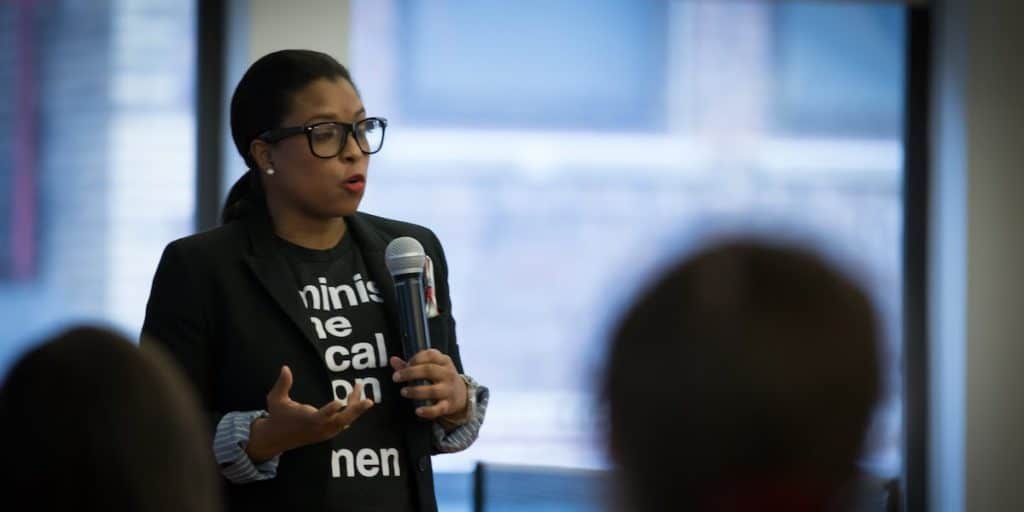What It Will Take for All Women to Advance
Minda Harts noticed something recently while being on the circuit of women’s events over the past year. When she signed copies of her new book, The Memo, she rarely saw a white woman. That’s not surprising perhaps, given the book’s subtitle, What Women of Color Need to Know to Secure a Seat at the Table. But it is, in her view, a missed opportunity.
“I often say success is not a solo sport,” Minda recently said. “If we saw each other as resources, we could get so much more accomplished.” But to do that, takes the courage to listen to and understand other people’s experiences—to pay more attention to the intersection of race and gender, among other things, that fall under the commitment to gender equality. Only then, she suggests, can women succeed in doing what is required for true gender equality: namely, turn allyship into action.
CEO & Founder of The Memo, a career development company for women of color and the companies where they work, Minda never set out to be an advocate for women of color.
“The first part of my career was pretty low-key. I was one of the women at work who worked hard and kept her head down. I thought that was the key to success,” she says. But then she noticed that even though she heard a lot of talk about diversity, no one like her moved up the ranks.
So, she started The Memo—in part, to search for answers for herself to the question of how women of color advance in the workplace. But the more she learned, the more committed she became to addressing the reality that there are no one-size-fit-all answers for all women.
The fact that there are even fewer women of color than white women in leadership presents unique challenges—perhaps most notably, a shortage of sponsors since leaders tend to sponsor people who they identify with or see themselves in. Women of color also are paid less than white women. And, says Minda, they face microaggressions based on race and often find it more difficult to self-advocate if they are the only ones in the room.
To address problems like these requires efforts from leaders, women of color, and white women allies. Leaders need to create a culture that works for everyone—where everyone feels safe to speak up and has an opportunity to contribute. Specifically, she recommends taking on the role of being “success partners” who notice who is missing—or not being given an opportunity—and partnering with them on the road to success.
Women of color need to speak up on matters that are important to their career and not be silenced by negative past experiences. They also need to build strategic relationships inside the workplace so that when they do speak up, they are not alone.
As for white women colleagues, Minda suggests showing up at employee resources groups or events for women of color—to signal that they are an ally and part of the solution.
They may feel a little fearful or wonder whether they should get involved, she observed. But, in the end, “I think all of this comes down to humanity—how to be good humans to each other.” And that begins with getting to know each other better.
